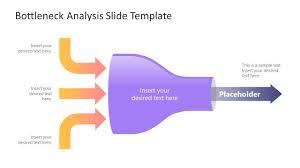Understanding Bottleneck Rechner: Optimize Your PC Performance Like a Pro

Introduction:
In the world of computer performance and gaming, every enthusiast wants their system to run as efficiently as possible. One of the most common challenges users face is performance imbalance — when one component of the computer slows down the entire system. This is where a Bottleneck Rechner comes into play. The term “Bottleneck Rechner” (translated from German as “Bottleneck Calculator”) refers to a tool that helps users identify which part of their PC setup is limiting performance. Understanding and using a Bottleneck Rechner can make a huge difference in achieving maximum hardware efficiency and smoother overall performance.
What Is a Bottleneck in a Computer System?
In computer terminology, a bottleneck occurs when one component of a system limits the performance of others. Imagine pouring water through a bottle — no matter how wide the top is, the narrow neck restricts the flow. Similarly, in a PC, if one part (like the CPU or GPU) is slower or less powerful than others, it can reduce the overall speed and capability of the system.
For example:
-
A powerful graphics card (GPU) paired with a weak processor (CPU) may cause low frame rates in games.
-
A super-fast SSD connected to a slow motherboard interface can’t achieve its full potential speed.
-
Low RAM capacity may slow down multitasking even if the CPU and GPU are high-end.
That’s where a Bottleneck Rechner becomes a valuable diagnostic tool.
What Is a Bottleneck Rechner?
A Bottleneck Rechner is an online calculator or software tool designed to analyze your PC’s hardware configuration. By inputting the details of your CPU, GPU, RAM, and other components, the tool estimates which part is likely causing performance slowdowns.
These tools use benchmark data, performance ratios, and compatibility information from various hardware databases to provide an estimated “bottleneck percentage.” This percentage indicates how much one component limits another. For example, if your CPU creates a 20% bottleneck for your GPU, it means your graphics card cannot perform at its full potential due to processor limitations.
Why You Should Use a Bottleneck Rechner
-
Optimize Gaming Performance
Gamers often struggle with frame drops or stuttering. A Bottleneck Rechner helps identify whether the issue lies with the CPU, GPU, or RAM, allowing players to make targeted upgrades for smoother gameplay. -
Plan Cost-Effective Upgrades
Instead of replacing the entire system, you can upgrade only the component that causes the bottleneck. This saves money while still delivering noticeable performance improvements. -
Build Balanced PC Systems
For those assembling new PCs, a Bottleneck Rechner helps ensure that each part complements the others. It prevents overspending on high-end components that won’t deliver proportional benefits due to mismatched hardware. -
Avoid Compatibility Issues
By comparing data from various hardware combinations, a Bottleneck Rechner also ensures that your chosen components are compatible and efficient together.
See more: Bottleneck
How to Use a Bottleneck Rechner
Using a Bottleneck Rechner is simple and straightforward:
-
Visit a Reliable Bottleneck Rechner Website – Popular ones include PC-Builds.com or specialized German tools like “Bottleneck Rechner DE.”
-
Enter Your Components – Input your CPU, GPU, RAM, and screen resolution (especially for gaming performance analysis).
-
Run the Calculation – The tool processes your input and provides a detailed performance ratio between the components.
-
Analyze the Results – Look for percentages that indicate imbalance. A high bottleneck percentage means you may need to upgrade that component.
Some advanced versions of the Bottleneck Rechner even provide suggestions for the best matching hardware upgrades to balance your system.
Common Bottlenecks and Their Fixes
-
CPU Bottleneck: If your CPU can’t keep up with your GPU, try upgrading to a faster processor or lowering in-game graphics settings that rely on CPU power (like draw distance or shadows).
-
GPU Bottleneck: If your GPU is the weak link, lower the resolution or invest in a stronger graphics card.
-
RAM Bottleneck: Insufficient memory can cause lag in multitasking or gaming. Increasing RAM size or speed often solves this.
-
Storage Bottleneck: Using an old hard drive can slow down load times. Switching to an SSD dramatically boosts system responsiveness.
The Future of Bottleneck Calculators
As hardware technology evolves, Bottleneck Rechner tools are also becoming smarter. Modern AI-based calculators can predict real-world performance, taking into account software optimization and real-time usage patterns. These next-generation tools can even simulate specific games or workloads, offering personalized upgrade recommendations.
Conclusion
A Bottleneck Rechner is not just a tool—it’s a roadmap to a perfectly balanced computer system. Whether you are a gamer, video editor, or casual user, understanding bottlenecks helps you make smarter hardware decisions. By identifying and fixing performance mismatches, you can extend the life of your PC, save money on unnecessary upgrades, and enjoy a seamless computing experience.
In short, if you want to get the most out of your computer, make the Bottleneck Rechner your go-to companion before upgrading or building your next system. It’s the simplest way to ensure every component works in harmony for maximum performance.
See more blogs: Visit Here
- Art
- Causes
- Crafts
- Dance
- Drinks
- Film
- Fitness
- Food
- Games
- Gardening
- Health
- Home
- Literature
- Music
- Networking
- Other
- Party
- Religion
- Shopping
- Sports
- Theater
- Wellness


